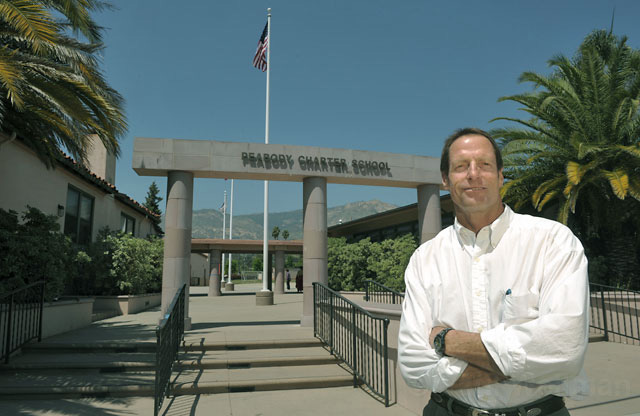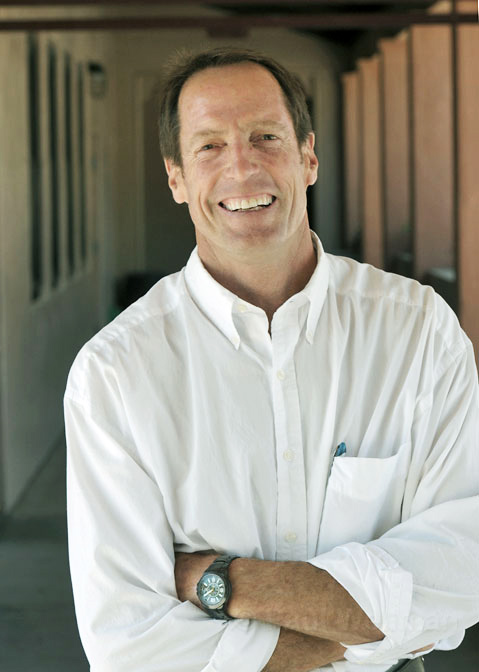Robert Johnson Not Selling His Soul, Just Real Estate
New Nonprofit Real Estate Business Aims to Put Solar Panels on Public Schools

Robert Johnson has worn many hats. In his twenties, he took a turn as a latter-day Henry David Thoreau, spending a year in the wilderness and even writing a book about it. After attending film school at UCLA, he wrote Hollywood scripts. While writing an HBO biopic on Mike Tyson, he became a licensed spit-bucket boy. Five years ago when his wife was fighting cancer, he began helping her with her real estate business.
Now he’s trying his hand at philanthropy. Johnson, who applied for his own real estate license about a year and a half ago, just incorporated his business as a nonprofit (called Santa Barbara NonProfit Realty). His goal is to put solar panels on the roofs of the six detached classrooms on the Peabody Charter School campus and, if he can maintain business, outfit all of the public schools in Santa Barbara with solar panels, thereby reducing greenhouse-gas emissions and alleviating the education budget crunch.
Johnson first approached Peabody principal Kate Ford about making the campus more energy efficient three years ago, when both of his sons were students there. (His youngest is about to graduate.) The school has since redone its electrical system, but the district could not afford to put up collateral for a loan to buy solar panels even though they would save tens of thousands of dollars — $53,000 (or enough to pay the salary of a new teacher) when included with the other electrical updates. By starting a nonprofit, Johnson figured, he could take care of the costs of installing solar power systems while the school district would accrue all the benefits. When school isn’t in session during the summer and, therefore, using little energy, says Johnson, the buildings could act as small generation plants.

With the agreement of his broker, Prudential, Johnson will donate half the profits from his real estate sales to put up collateral and service loans for rooftop solar installations. As far as he knows, his is the only nonprofit real estate operation in the country. That may be because real estate agents are completely dependent on commissions for their income. And more successful agents can afford to market and, therefore, crowd out smaller fish.
When asked whether his nonprofit is a scheme to drum up business, Johnson says that if he can move in on high-end real estate deals and donate half the profits to a good cause, why not? He figures that maybe recent eco-savvy Montecito home-buyers like George Lucas and Al Gore would have given their business to Santa Barbara NonProfit Realty had it existed. The commission on either one of their homes (which reportedly sold for $18 and $8.2 million, respectively) could have provided two or three schools with solar panels.
Johnson dreams that one day he will also be able fund the installation of solar panels on schools by selling carbon credits to companies like Venoco after California’s cap-and-trade program officially rolls out. He also understands the odds against his nonprofit ever becoming an established venture. Even as he dreams big, he says, “I would be content if I only got solar on Peabody.”



